People of religious faith may have experienced lower levels of unhappiness and stress than secular people during the UK’s Covid-19 lockdowns in 2020 and 2021, according to a new University of Cambridge study released today as a working paper.

The new research shows it would be necessary to link trade data from different countries to create an accurate global map of supply relations.
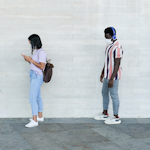
During the COVID-19 pandemic, national health authorities in many countries recommended that citizens wear masks and practice social distancing to stop the spread of the disease. But at the same time, a number of political leaders downplayed or contradicted such advice.

A new study co-authored by Emeritus Professor Andrew Harvey produces good forecasts of epidemics before new cases or deaths peak.

Assistant Professor at the Faculty of Economics Christopher Rauh's research has been featured in the Economist Magazine.
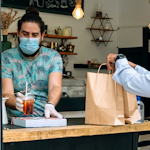
Dr. Flavio Toxvaerd has published an article in the Economics Observatory. With the worst of the pandemic now behind us, it is time to take stock of how the government dealt with the crisis and to learn important lessons for the future

Increased pressure on doctors, nurses and hospitals may have created an unfortunate spill-over effect, as a result of much attention being given to Covid patents, and increasing preventable excess deaths among patients seeking medical help for rea

VoxTalks have released a podcast based on Dr Flavio Toxvaerd's recent paper, "Epidemics in Space: Control, Targeting and Delegation".
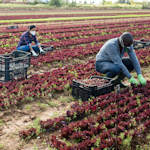
Dr Flavio Toxvaerd and Darren Hoover (Faculty of Economics, PhD student) have published an article for VOXeu that considers whether countries coordinate control measures during pandemics and should policies be locally targeted?

Dr. Flavio Toxvaerd was interviewed for The Deepness, an online dive deep into the world of science.
“Our work clarifies why a more expansive definition of herd immunity is necessary and that focusing on the threshold property is misleading”. Read the full interview with Dr Flavio Toxvaerd on The Deepness site.

The Faculty's Prof. Chryssi Giannitsarou has sent out a survey in Qualtrics Cambridge for her ongoing research project on Covid-19 and academic productivity in economics research. Please do respond if you receive an invite.

Dr. Flavio Toxvaerd was interviewed by Comedian Sammy Obeid, for his "Explain it to a comedian" video series.
Dr. Toxvaerd talked to Sammy about his economic epidemiology work, and spoke about the impact of lockdowns and how to deal with the next pandemic.
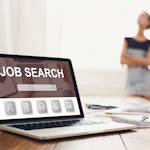
Research by Dr Christopher Rauh, an Assistant Professor at the Faculty of Economics, has found that while workers are overly optimistic about the probability of receiving a job offer conditional on any search, t

Dr. Flavio Toxvaerd was interviewed by Sebastian Galiani, for his 'Conversations' video series (in Spanish).
In the Conversations with Sebastian Galiani: Episode XLV, Dr Toxvaerd spoke about his research into Economy and Epidemiology, Vaccine markets and contagious diseases.

It shows how Indians View Gender Roles in Families and Society and indicates Indians accept women as political leaders, but many favour traditional gender roles in family life.
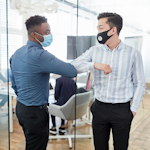
Watch videos from the Behaviour and Policy During Pandemics: Models and Methods Workshop, hosted by Dr. Flavio Toxvaerd and the Isaac Newton Institute.
This online event took place on Tuesday 22nd February 2022 and consisted of talks from experts at the forefront of behavioural science, mathematical modelling and economics.

Dr. Christopher Rauh's research into the value of sick pay, has been mentioned in a Financial Times article.

Dr. Christopher Rauh and Thiemo Fetzer's (University of Warwick) research into the pressures put on public health care during the COVID-19 pandemic, has been picked up by a range of media sources.

In the Financial Times Dr. Flavio Toxvaerd argues that we can’t tackle Covid unless economists and epidemiologists talk to each other.

Delays to cancer referrals and treatment times have led to an estimated 32,000 missing cancer patients that should have already started receiving treatment.

Dr. Flavio Toxvaerd was quoted in the Financial Times newspaper's article on the economic impact of the Omicron variant.
The article looks at how Boris Johnson’s decision to ride out the Omicron wave of Covid-19 is effecting the UK business and the economy and how both are recovering post-pandemic.

The data on the number of detected cases of the Omicron strain are not encouraging. Many European governments will need to resort to new measures against the spread of the new strain.

Following the announcement that antiviral treatments for Covid-19 will soon be available, will this reduce people’s incentives to avoid becoming infected, lessen their readiness to practice social distancing or even discourage them from getting vaccinated.

Dr. Flavio Toxvaerd has commented on Sky News about a study which shows COVID certification led more people to get vaccinated.
He said the study "confirms that people respond to incentives, in this case incentives to get vaccinated, and requiring vaccine certification makes life for the unvaccinated more cumbersome".

The UK has experienced a huge change in trade policy. Having left the EU, it is in the process of devising its own trade policy, one that will shape economic and welfare outcomes in all corners of the United Kingdom for generations.
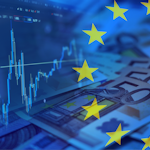
Professor Giancarlo Corsetti gave a talk at CEPR-Research and Policy Network on European Economic Architecture Workshop, on Wednesday 1st December 3.00-5.00pm, in Luxembourg.
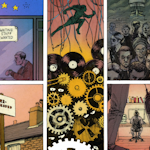
Dr. Flavio Toxvaerd participated in a panel event for the Economics Observatory, "A one-two punch: health and economics".
Dr. Toxvaerd, along with Melanie Cockroft (Intensive Care Senior Clinical Fellow), Paula Lorgelly (UCL) and Ben Moll (LSE) were in conversation with Chris Giles (Financial Times).
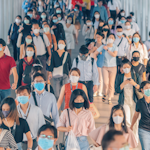
Watch videos from the Modelling Behaviour to Inform Policy for Pandemics event, that Dr. Flavio Toxvaerd and Newton Gateway to Mathematics organised.

The Telegraph covers research in the Faculty showing people spent less time on employment-related activities, while spending more time on housework.
Those who have not returned to the office spend less time on employment-related activities and more on housework, research by Ines Lee reveals.

This is according to a new study of “time-use diaries” kept by 766 UK citizens from across the social spectrum during three points in time: the last month of normality, the first lockdown, and the last lockdown in March of this year.
